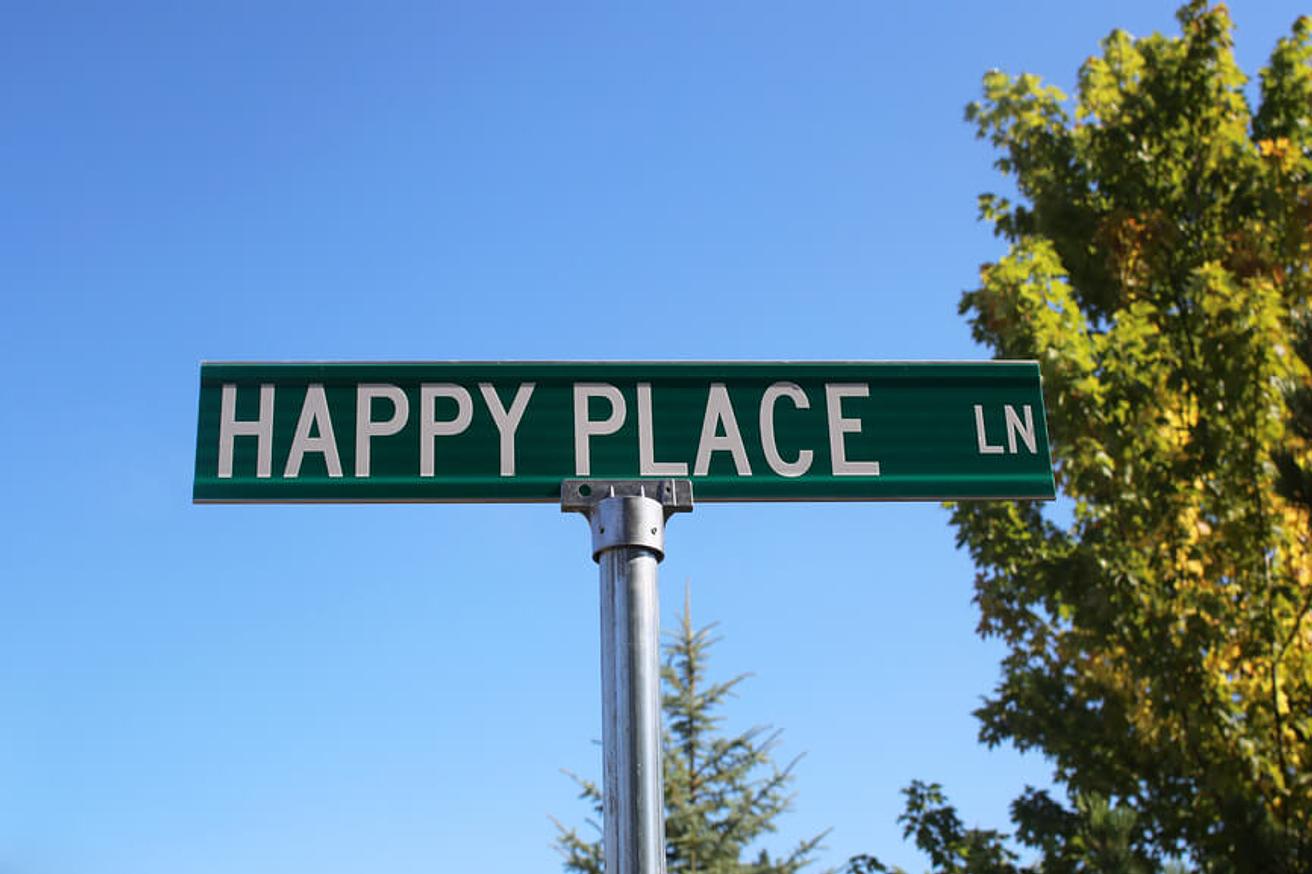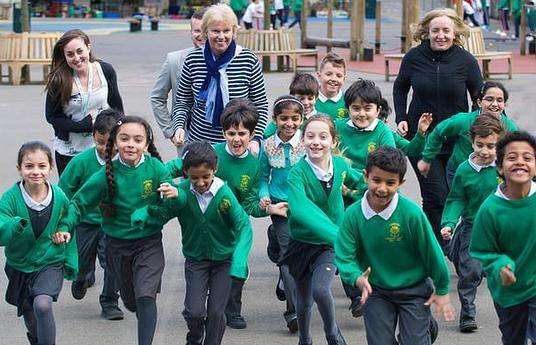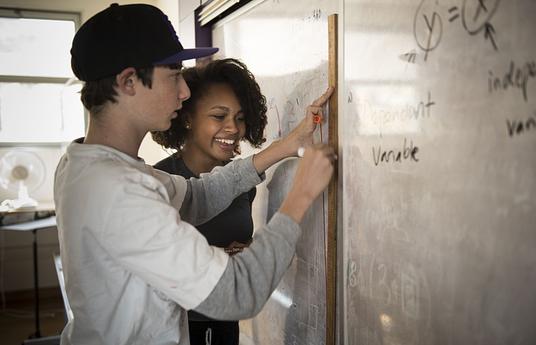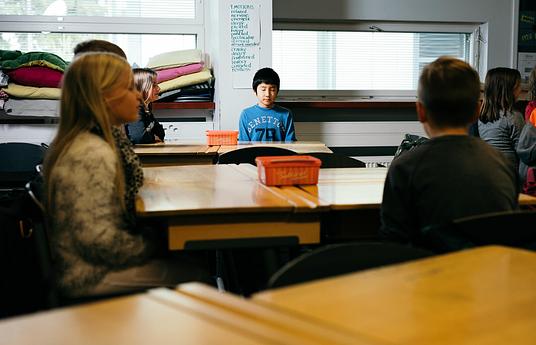Mental health issues are on the rise, particularly in young people, but so are the solutions that could help. Exposure and normalization of mental health issues have started to pick up steam and we now have a unique opportunity to truly and meaningfully help young people who suffer from mental health issues from a young age – meaning that they don’t have to suffer for years in silence.
There is no one way to treat mental health, just as there is no one person. Everyone is unique, which means their brains and bodies are too. This doesn’t mean tackling mental health shouldn’t be attempted, it just means we have to throw our all into it to help in any way possible. So here are five ideas from around the world on how we can achieve a healthier mindset for our children.
The Daily Mile - A Quick, Easy-To-Implement Exercise Program
Exercise is one of those annoying things that everyone knows is good for us, and for those who don’t suffer from mental health issues it can be easy to say to someone, ‘why don’t you just go for a run?' This is possibly the worst thing to say to someone when it’s a struggle to even get out of bed in the morning, let alone anything else. Small steps can help though. The Daily Mile, an initiative established in Scotland, has kids go out into the playground for just fifteen minutes a day. They don’t need to change into sports gear, they go as they are in their school uniform. They can walk, jog, or run – whatever they’re comfortable with doing.
The idea is for children to reap the physical, emotional and social wellbeing benefits of exercising outdoors in a non-competitive, inclusive atmosphere. Helping to instill healthy lifestyle routines at an early age and in small, unthreatening chunks, can help to combat pre-existing mental health conditions or ones which might develop at a later age.
MeeTwo - An Early Intervention App for Teens Living With Anxiety
MeeTwo is an early intervention app which helps teens who suffer from high stress levels and anxiety communicate their feelings in a safe space as an anonymous user. Anonymity means young people do not have to worry about how they look or sound when they are seeking or giving help.
The app was created by a psychologist and an educational technologist in collaboration with teenagers from schools in England. The young people involved wanted a discrete, ‘easy to access’ service on their phones, that was as quick and simple to use as social media platforms such as Twitter.
Peer support is the key resource of the app, which reassures users that they are not alone in what they’re feeling and experiencing. Users can ask questions and receive advice or replies (which are pre-moderated) in order to have a healthy, supportive discussion to help them through what they’re experiencing. Receiving help virtually is particularly beneficial for those who experience social isolation and anxiety, including those with special needs such as Autism.
MeeTwo is an excellent example of how new technologies can be harnessed to help mental health issues rather than be detrimental.
Outdoor Discovery Centre - Bringing Nature Back Into Our Wellbeing
In a city-centric 2D world, where we spend increasing amounts of time online, nature can hold an important role in our mental health and wellbeing. Being in a natural environment can help bring us back into the physical world and outside of our own minds, effectively shutting down negative thought patterns and stresses.
The Outdoor Discover Centre in Singapore focuses on giving every child these cognitive, social and physical benefits of daily outdoor learning. The space is designed out of all natural materials, with hills and tunnels planted with grass, and provides the children with the opportunity to play and move in an organic manner to stimulate physical and mental wellbeing.
The school reports increased attention, curiosity and concentration after the children have outdoor sessions, as well as a reduction in behavioural incidents. Increased imagination and creative problem-solving skills are also reported, while parents are pleased with enthusiastic stories of school and improved sleep.
Smiling Mind - A Pro-Active Approach To Looking After Your Mental Health
Smiling Mind is an app that helps young people to pro-actively look after their wellbeing and mental health. Developed with teachers, psychologists and health professionals, the app has a series of bitesize, simple meditation modules for children, teachers and parents. The structure of the app's content is intentionally flexible so teachers are able to decide how and when to bring mindfulness into the classroom.
The app is provided to schools for free, aiming to build happier, healthier and more compassionate children and adults who can deal with the stress and challenges of daily life. Based in Australia, the goal is for mindfulness to be officially on the Australian national curriculum by 2020, so that these healthy practices are instilled into everyday life throughout the country.
Positive Education - A Whole School Approach To Positive Mental Health
Positive Education, pioneered at Geelong Grammar School in Australia, is a school-wide approach which promotes student and staff wellbeing. Based on the science of Positive Psychology, Positive Education aims to enable individuals and communities to flourish.
The Geelong Grammar School model is based on a framework which emphasizes positive relationships, positive emotions, positive health, positive engagement, positive accomplishment, and positive purpose. That's a lot of positivity! The framework comes to life at the school on four levels: 'learn it,' 'live it,' 'teach it,' and 'embed it.'
From the outset, the school has prioritized student and staff wellbeing through transformational educational programs, and through innovation and research in the field of Positive Education. The project takes a proactive approach to reexamining what education is really for and backing it up with scientific research, reinstalling into modern education the things that are most important in life – health and happiness.
Find out more about the individual innovations and how to implement them on their project pages!



